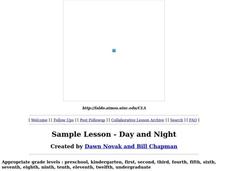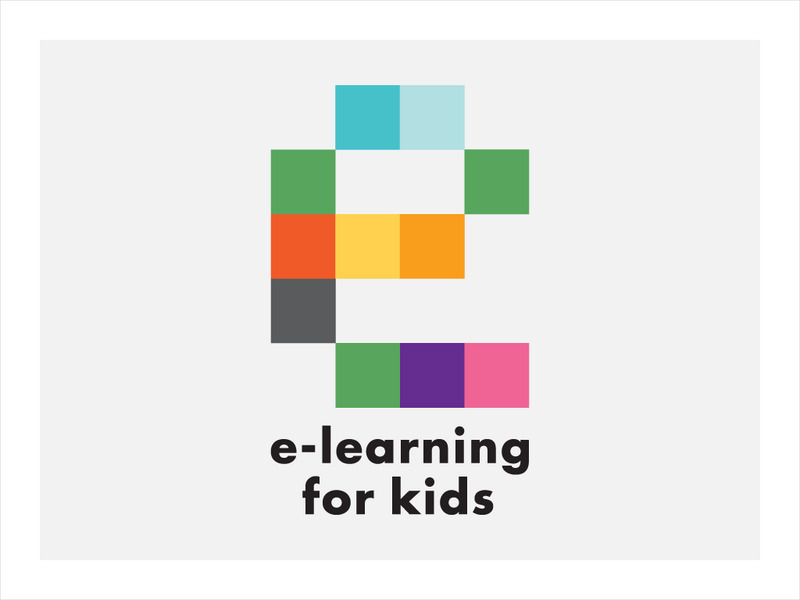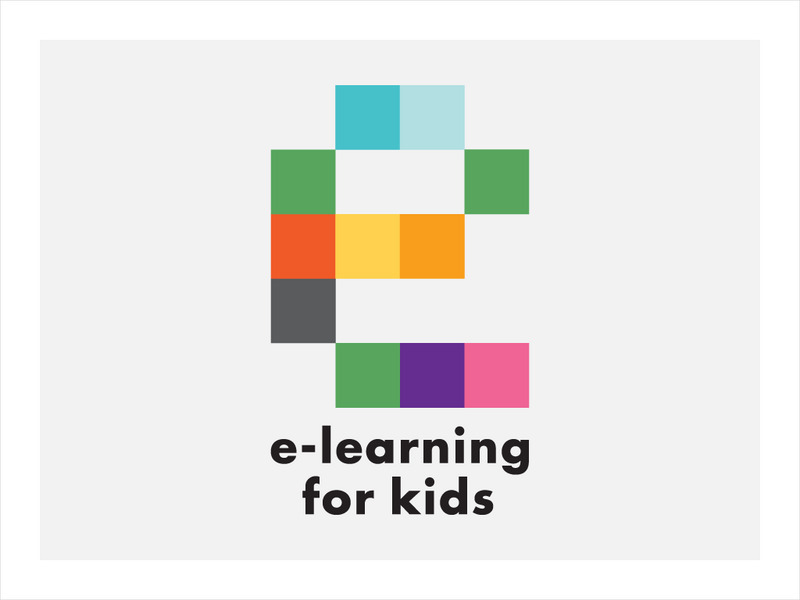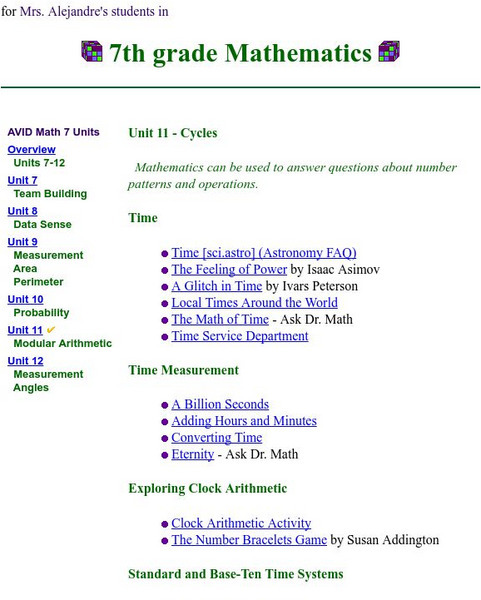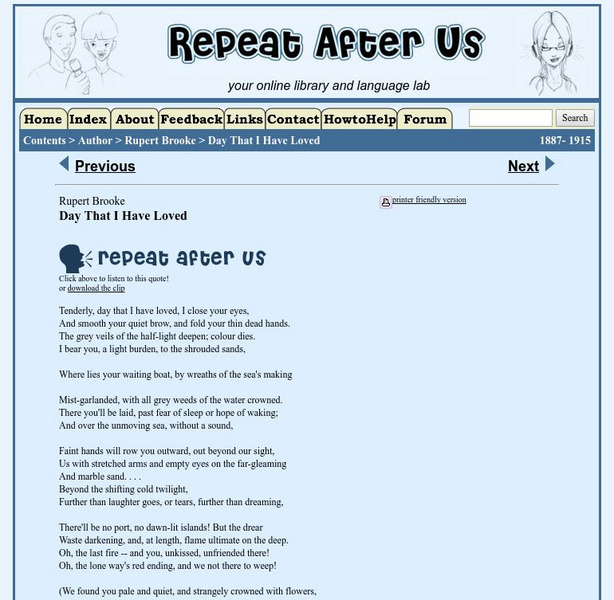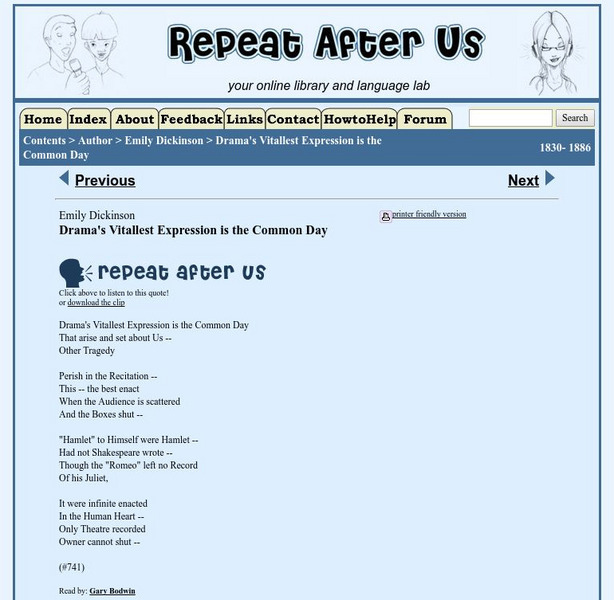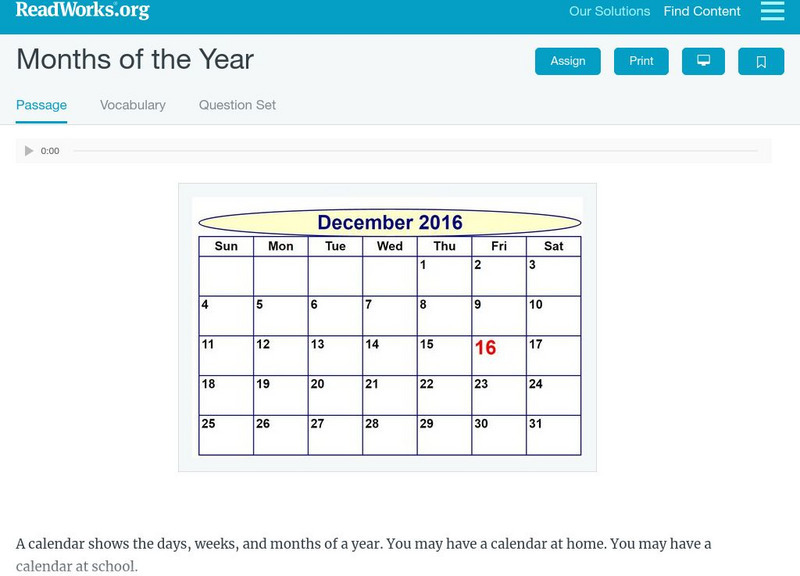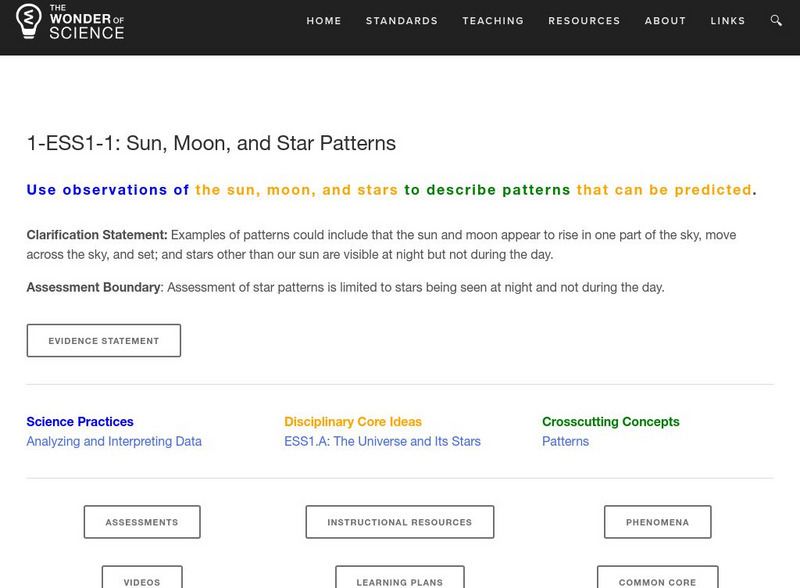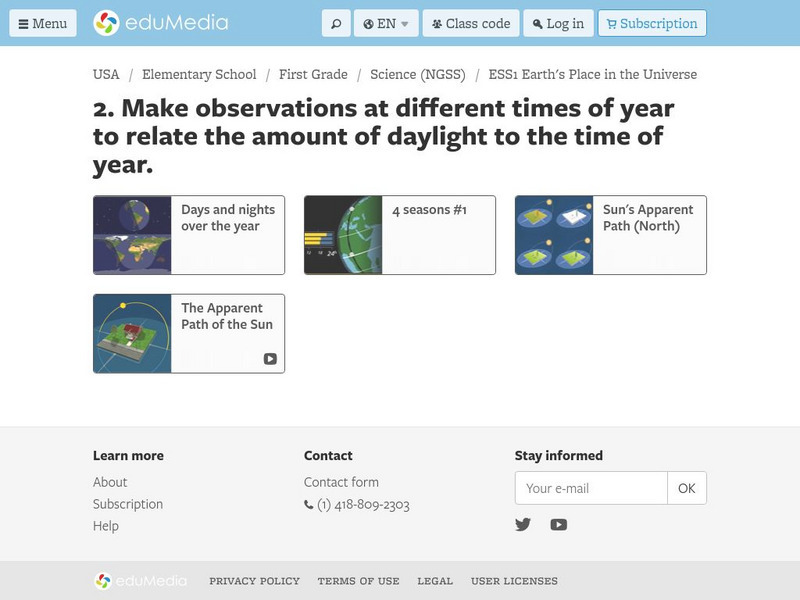Curated OER
Multiplication Word Problems
In this multiplication worksheet, 5th graders identify which expression matches the story and explain why. Then they write a numerical expression for each and solve the word problem.
Curated OER
Developing Fluency: Hurry, Off We Go!
Students practice reading with fluency and accuracy, as well as remembering what they have read in order to interpret the meaning of the text. They read a story several times to become fluent reading faster each time read. Finally,...
Curated OER
Day and Night
Students using experiments try to demonstrate how observations can be affected by the cycles of night and day.
Curated OER
DAY AND NIGHT
Students use a lamp as the sun and his/her body as the earth. They rotate in different directions to explain how the earth moves around the sun. Using specific questions in their discussion, students discover the reasons for day and night.
Curated OER
Day and Night
Students discuss why day and night occur after visualizing a teacher-led demonstration.
Science Education Resource Center at Carleton College
Serc: Investigating Rotation: Why Is There Day and Night?
In this rotation activity, young scholars investigate what causes day and night by participating in a classroom activity. Students will observe, question, and investigate how the relationship between the earth and sun causes day and night.
BioEd Online
Bio Ed Online: Sleep and Circadian Rhythms
The following lessons help students from grades 6-8 understand sleep and circadian rhythms. Lesson topics iinclude: day and night, seasons, sundails, clocks, sleep and sleep patterns and sleeping in space.
Other
Aish.com: Counting the Omer With Aish
Provides links to four articles dealing with the counting of the Omer and Lag B'Omer.
BBC
Bbc Schools: Ks2 Bitesize: Science: Physical Processes: Earth, Sun, and Moon
Help Sarah Jane and her team put the solar system's planets back in order. Following the activity, read more about the sun, the Earth, and its moon, and then take a quick quiz to check for understanding.
PBS
Pbs Kids: Daniel Tiger's Day & Night
Learn about morning and bedtime routines with PBS KIDS' Daniel Tiger. Help Daniel get ready for school in the morning and for bed at night through imaginative play and songs.
E-learning for Kids
E Learning for Kids: Math: Music Center: Days of the Week and Area
Join Skip the kangaroo and help him decide the days of the week.
E-learning for Kids
E Learning for Kids: Science: Center of the Ocean: The Sun, the Earth, and the Moon
Nita lives on Coco Island in the Indian Ocean, and is learning more about the Sun, the Earth, and the Moon. Join her and learn about day and night.
National Council of Teachers of Mathematics
The Math Forum: Seventh Grade Mathematics: Cycles
Teachers can use this resource for creating interesting lessons about time and time measurement. There are articles about leap year, converting time, as well as other links for further research. An interdisciplinary project about an...
The Math League
The Math League: Time
This site provides conversions from minutes to seconds, days to hours, weeks to days, when discussing time.
Repeat After Us
Repeat After Us: Day That I Have Loved
A poem from Rupert Brooke, "Day That I Have Loved", is provided on this site. Students may listen to this poem read aloud by Bobby Allen and can access a printable version of this piece.
Repeat After Us
Repeat After Us: Drama's Vitallest Expression Is the Common Day
A poem from Emily Dickinson, "Drama's Vitallest Expression is the Common Day", is provided on this site. Students may listen to this poem read aloud by Gary Bodwin and can access a printable version of this piece.
Other
Conversions for Time Measurement
This site allows you to convert various time measurements. Example seconds to days.
Scholastic
Scholastic: Study Jams! Math: Measurement: Using a Calendar
This site provides great practice on the concept of using a calendar and elapsed time. Students can first learn about the topic by watching a step by step instruction video that also points out areas of concern. Finally, students can...
Math Is Fun
Math Is Fun: Sun Clock
The mathematics resource discusses the sun clock. Students review the concept using the provided notes and then answer questions to check for comprehension of the topic.
Math Is Fun
Math Is Fun: Weeks
The time resource investigates weeks. Topics discussed are days in a week, weeks in a year, weekdays, and weekends. Practice exercises with solutions are also provided.
Read Works
Read Works: Article a Day Set: Time
[Free Registration/Login Required] This Article-A-Day-Set provides six articles related to "time." Students will learn about the days of the week and months of the year.
Read Works
Read Works: Article a Day Set: Time: Parts of a Day
[Free Registration/Login Required] ReadWorks provides numerous resources filled with informational articles. "Parts of a Day" provides information about the parts of a day: morning, afternoon, evening, and night. This passage is designed...
The Wonder of Science
The Wonder of Science: 1 Ess1 1: Sun, Moon, and Star Patterns
The NSTA vetted source includes resources to help students describe patterns of the sun, moon, and stars using observation. Included are assessment ideas, videos, examples, lesson plans, and photos of student work.
Other
Edu Media: 2. Make Observations at Different Times of Year
Choose from four animations that show why the amount of daylight is different throughout the year. Topics include the seasons, the sun's apparent path, and days and nights over the year.






